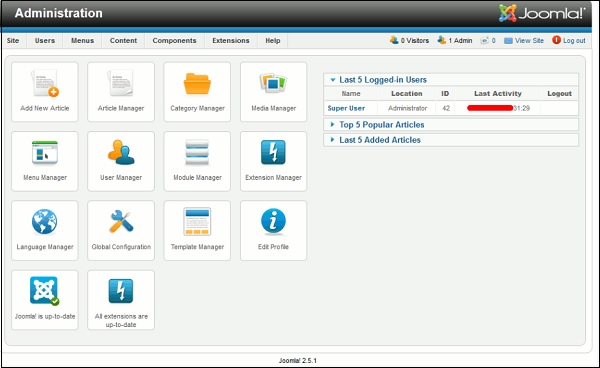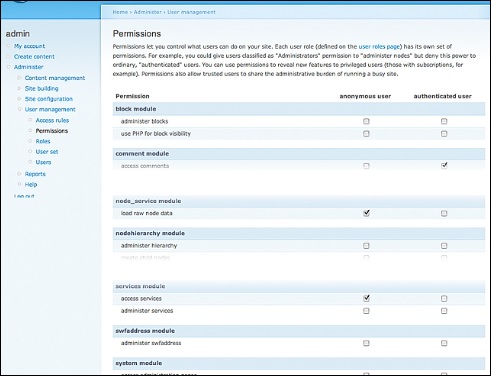
- Website Development - Home
- Website Development - Introduction
- Required Skills
- Domain Name
- Domain Name Registration
- Website Development - Subdomains
- Domain Privacy
- Configure DNS Record on a Hosting Platform
- CMS Platforms
- Flat & Dynamic Webpages
- Publishing & Development tools
- Commercial & Free Themes
- Choosing a Web Hosting Company & a Plan
- Website Development - Cpanel
- Website Development - Setup
- Public Authority Certificates
- Purchasing a Public Certificate
- E-Commerce Platforms
- E-Commerce Payment Gateway
- Small Business Website
- Back Up Your Website
- Webpage Migration
- Testing Your Website
- Website Development - Security
- Speed Up Your Website
- Advertise Your Webpage
- Website Development - Adwords
- Website Development - SEO
Website Development - CMS Platforms
In this chapter, we will first discuss how to make the right choice for your website and which Content Management System (CMS) Platform to choose for your website.
Choosing the Right Website
Let us understand this by asking ourselves a few questions and then discuss the concept in detail.
Question 1 − How much money do we want to spend?
Answer − This is one of the main questions because it is directly related to the budget. If your budget is low, then you should think of something non-commercial and not too complicated.
Question 2 − How much time do we have to plan for the maintenance?
Answer − If you are going to publish many offers, having a blog to moderate, etc., then for sure you will need a dynamic website. You must have extra staff for handling all this, thus this question correlates with the Question 1. Otherwise you should have a flat website, which we will explain in the following chapters.
Question 3 − Will the website be used as an e-commerce site for selling products online?
Answer − If this is the case, you should look for a platform which is called e-commerce. There are many such open source and commercial ones such as Magento, Opencard, Shopify, etc.
Question 4 − Should the view be adaptable for different screens like mobiles?
Answer − If this is one of the main criteria and if there are not many other changes in terms of information in the website; then you should go with a flat website having features like Bootstrap.
Question 5 − Will my website interact with social media or other third party platforms?
Answer − You will need a record for all the events happening on your website and they will be saved in a database. For keeping all this data and records, you will need a dynamic website.
Question 6 − What type of web programing language or platform is easier to find?
Answer − Depending on the country, there are several programing languages or platforms which are more popular than the others. So, you should first find a platform that goes with the trends of your region.
CMS Platform
Content Management System (CMS) Platforms are applications which allow to create and run your website. You will get an Admin Panel, which is an interface where you can create and update pages, posts and other type of content (images, videos, etc.) and arrange the content the way you need.
You will also be able to change the design of the site through the admin panel by installing themes (design templates) and changing them. All the actions are done simply by clicking on various buttons. You dont have to write codes or scripts in most cases, so you can manage your content easily.
The most prominent CMS platforms are WordPress, Joomla and Drupal. They are free and open source CMS engines. That means their source code is open to the public. You can use, edit and customize the core files of the engine on your site and if you discover a great way to improve the platform, you can pitch it to the developers and help in making their engine even better in their next update.
WordPress is an open source CMS. More than 50 % of the webpages are by that platform. It is getting more comprehensive, intuitive and popular with each new update release. WordPress has a committed community, which has tonnes of free extensions and the easiest-to-use interface.
Managing your content with WordPress is perfectly simple: you create a page, add it to the menu, post something on it and see your content on the front-end of your site. All that adds up to a pre-eminent CMS platform. The official webpage is https://wordpress.com/.
The following screenshot shows the dashboard background.

Joomla has balance between customization possibilities and user-friendliness, yet it is much more complex than WordPress. If you have never worked with this engine before, you will need some time to get used to modifying it. Assigning plugins to modules, positioning modules on different pages, configuring layouts and other necessary manipulations can be a bit hard on a beginner developer.
On the other hand, Joomla extension developers and community have come up with many inspired solutions for common web design problems that are hard to resolve within WordPress. If we take any Joomla slider extension as an example, you can set its location on the page, the duration for showing each slide, the sliding effect and the type of pagination.
Its official webpage is https://www.joomla.org/.

Drupal is for huge websites and organizations that can afford full-time administrators. You can do almost anything with Drupal. I am often fascinated by how many options the engine contains out of the box. Lots of things which in WordPress or Joomla would require custom coding have readymade solutions by default in Drupal. It can be enhanced even more with third-party extensions. But, I will be honest with you - learning to operate it, is the real challenge. It takes a lot of work and patience to master.
Its official website is https://new.drupal.org/home. A view of its dashboard background is shown in the screenshot below.
